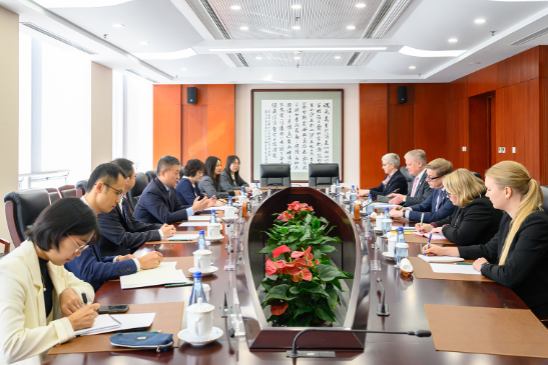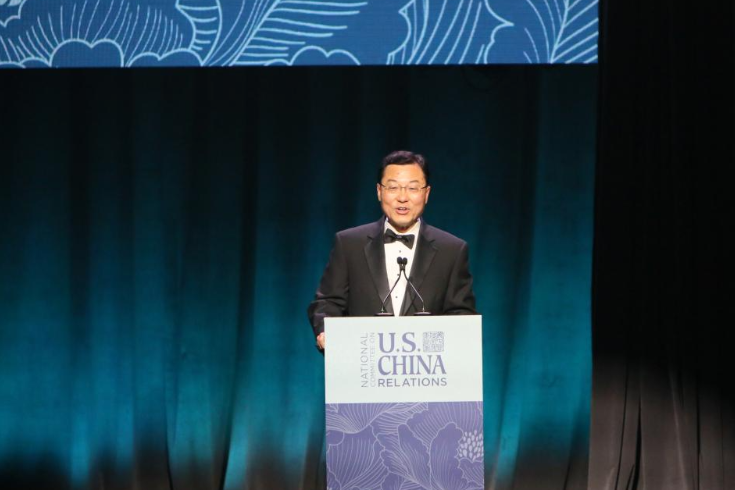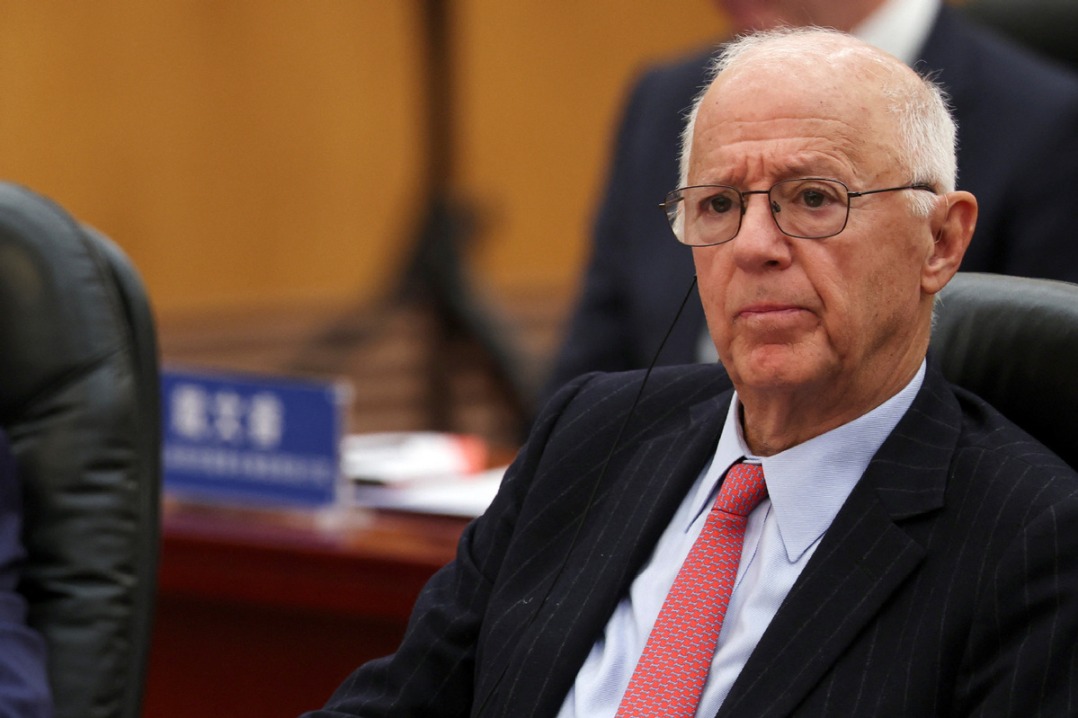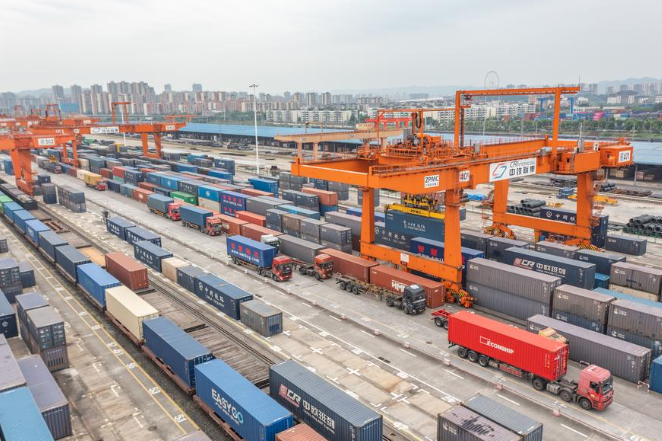London walking a tightrope with Washington

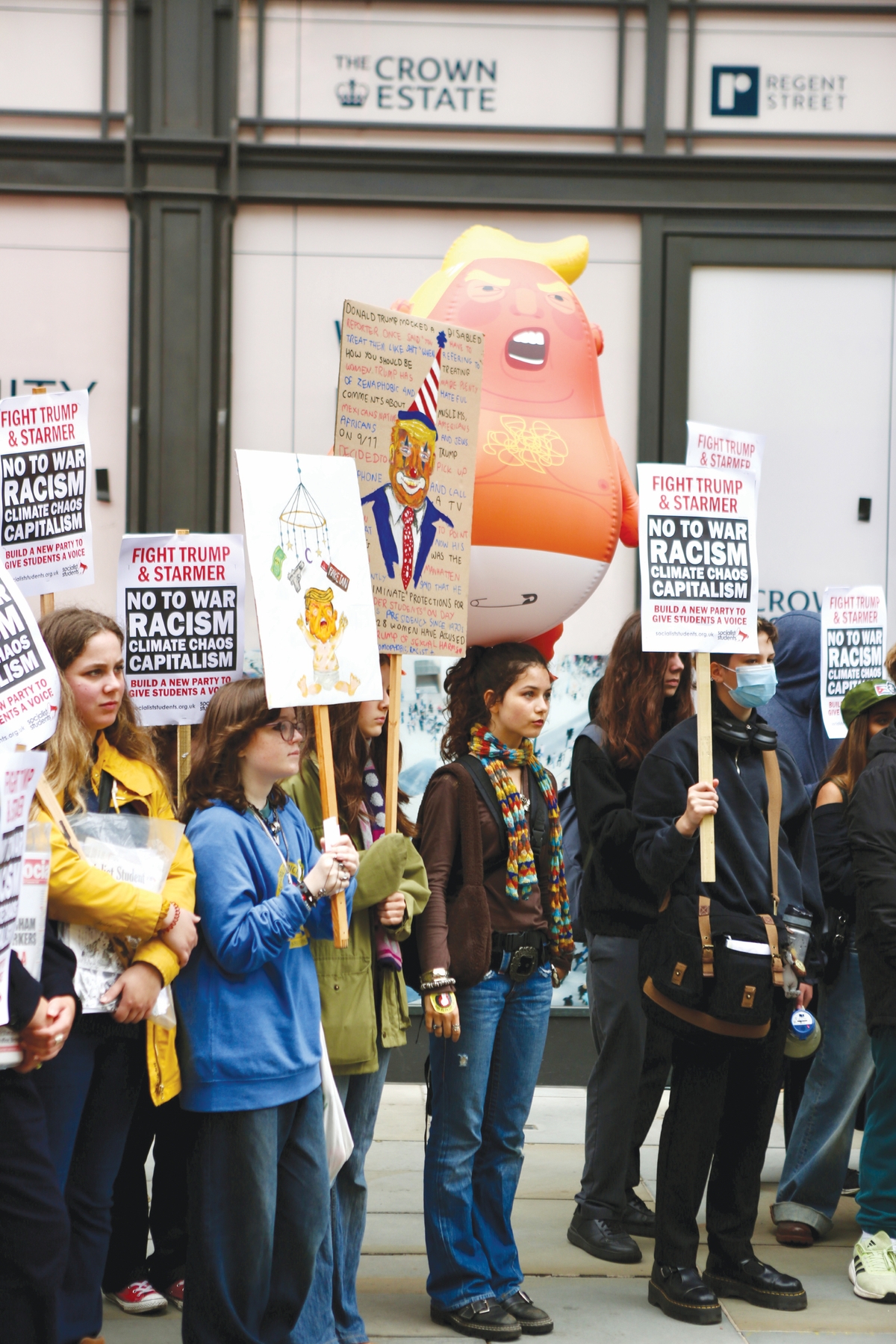
When United States President Donald Trump made his second state visit to his country's close ally, the United Kingdom, recently, he was greeted with a royal charm offensive, but also with protests in central London by up to 5,000 people chanting that he was "not welcome here".
Experts said the visit revealed a broader dilemma facing the UK government in its dealings with the US administration, as well as a fundamental shift in the transatlantic relationship.
Keith Bennett, a London-based senior analyst of international affairs, said though Trump enjoyed the royal pageantry, what was unusual was the fact that he did not set foot in the capital at all, and the usual elements of a state visit, such as a horse-drawn carriage along the ceremonial route to Buckingham
Palace or an address to both Houses of Parliament, were entirely absent.
"The fact that they tried to make the state visit the most ceremonial, grandest that they possibly could, but had to keep everything happening out of London, is striking," he said. "That indicates the British government's position here. The visit is not just controversial in public opinion, but also in parliament, and even within the ruling party itself."
Divergences among the transatlantic allies on issues such as Ukraine, the Middle East, and tariffs have been noted. Despite this, Vince Cable, former UK secretary of state for business, innovation and skills, said the government may think it is not in a position to act tough, as the UK is heavily dependent on the US for defense protection, intelligence sharing, trade, and investment, and Brexit has also left the UK more "isolated".
"The view is that this is not a relationship that the British government could afford to play games with," Cable said. In that sense, the strategy adopted by the government is understandable, and the visit could even be considered "worthwhile" for the UK.
The US was the UK's largest trading partner in the four quarters to the end of the first quarter of 2025, accounting for 17.8 percent of total UK trade, according to the UK Department for Business and Trade.
As part of the state visit, the UK government claimed that it had secured a "historic" 150 billion pounds ($205 billion) of inward investment from US companies, which will create more than 7,600 high-quality jobs.
Martin Jacques, a senior fellow at Tsinghua University in Beijing and Fudan University in Shanghai, also said the strategy is "clearly being worked out", noting that the US-imposed baseline tariffs on UK imports are 10 percent, rather than the 15 percent faced by the European Union.
"The dreadful display of condescension, I think, has created an atmosphere where Britain has done a little bit better," Jacques said.
Yet, question marks remain over whether the strategy can be effective in the long run — whether the more favorable climate seen so far amounts to a guarantee, and what costs may come with such a tactic, Bennett said.
"Yes, we've achieved lower tariffs than some other countries. But those tariffs are still higher than they were before. It is not an outright victory, and it comes at a price … In that sense, they are actually circumscribing British independence and reinforcing US control," he said.
The experts agree that something seismic has shifted in the transatlantic relationship, and that this is not just a bout of turbulence that will fade after four years.
"What is happening in the US is the whole character of politics has changed," Jacques said. "We've got to understand that what has happened politically is a reflection of a deeper shift in American society and American culture. It is not just about a few individuals and leaders.
"Likewise, the shift away from Europe is a fundamental one. We will see how it develops. But I think the whole notion of America since 1945, which was global hegemony and an alliance system, that era is over. We are not going to the status quo ante."
Bennett added, "The question is that, in international relations, it is easier to sour a relationship than to improve it. Maybe countries would be looking at the questions of how to get through this era and then rebuild from there. But it would also be sensible to draw a lesson that the US is perhaps not the completely reliable, steadfast, permanent ally that people hitherto have assumed."
Rather than risk over-reliance on the US, Cable suggested that the UK, along with the rest of Europe, should reach out to form a stronger relationship with a wide variety of countries, including Canada, India, those on the African continent, Brazil, and China, to hedge against the vulnerability.
Practically, any British government would seek good relations with the US, Bennett said, but engaging with the wider world more comprehensively also needs to be regarded as a way forward.


















